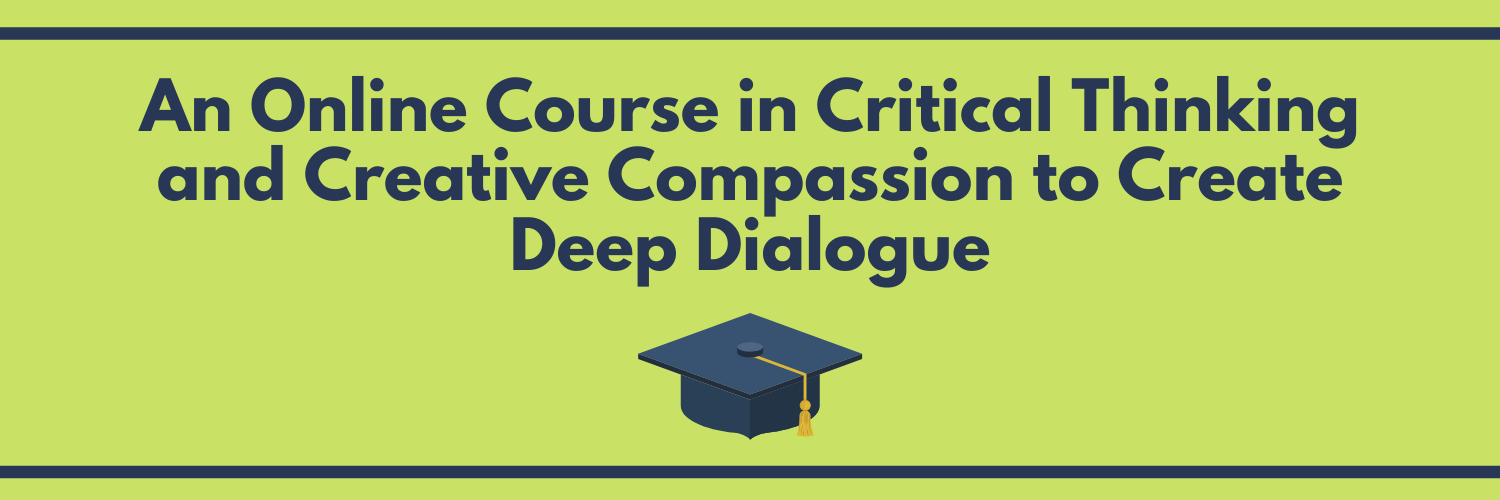Leonard Swidler
Founder/President, Dialogue Institute
Co-founder with Arlene Swidler and Editor, Journal of Ecumenical Studies
Professor of Catholic Thought and Interreligious Dialogue, Temple University
dialogue@temple.edu
INTRODUCTION
Dialogue—the mutually beneficial interaction of differing components—is at the very heart of the Universe, of which we humans are the highest expression: from the basic interaction of matter and energy to the creative interaction of protons and electrons in every atom, to the vital symbiosis of body and spirit in every human, through the creative dialogue between woman and man, to the dynamic relationship between individual and society. Thus, the very essence of our humanity is dialogical, and a fulfilled human life is the highest expression of the "cosmic dance of dialogue."
Deep Dialogue
Dialogue comes from the Greek dia, “together,” and logos, “thinking,” as in “logic.” Hence, etymologically, dialogue means “thinking together.” As increasingly used today, dialogue means “I want to talk with you who think differently from me so I can learn”—a 180-degree revolution from previous millennia. As dialogue in this sense is used more penetratingly, it becomes transformative of both the individual and the community and then is named "deep dialogue." As a result of a profound shift in humanity’s understanding of how we understand, that is, our epistemology, more and more individuals and communities are recognizing that “Nobody knows everything about anything—therefore dialogue!” Consequently, deep dialogue becomes transformative and puts us in touch with our own deeper self and with all around us.
Interreligious dialogue is a two-way communication between persons who hold significantly differing views on the religious life, understood as an “explanation of the ultimate meaning of life and how to live accordingly.” This definition also includes ideologies such as atheistic humanism.
In any such system, persons must develop the skills of critical thinking and "creative compassion" in order to participate in deep dialogue to create new understanding, one of “the other.” This short course focuses on honing those skills toward peaceful coexistence among persons of differing faiths and ideologies.
To that end, this course is grounded in the following assumptions:
Deep dialogue entails at its root clear, reflective, critical thought.
Critical thinking entails a dialogue within our own minds and lives.
Creative compassion entails a dialogue with our feelings and the feelings of others.
Both critical thinking and creative compassion, with practice, become habits of mind and action, traditionally known as virtues—a new basic mentality and consequent practice; that is, a way of life.
Course Description and Objectives
This course intends to meet a great challenge: to empower people to live in society with genuine respect and mutual care for self and others. Human relations break down when worlds collide. Violence and abuse arise in ethnic conflicts, racial hatred, gender issues, ideological confrontations, and ecological indifference. This course teaches content and skills that help transform these challenges into opportunities for a deepened sense of one’s own worldview and an awakened awareness of the worldviews of others who share a different worldview from one’s own.
Religion is the particular lens used here, with an assumption that values and ideologies can function in a person’s life as does a religion, even if someone isn't particularly or at all religious. At the end of this self-paced course, one will be able to meet the following objectives:
Define dialogue, and apply it to one’s daily life.
Use critical thinking about an issue of importance.
Demonstrate increased knowledge of one’s own worldview and that of another person.
Recognize the difference between a stereotype and a generalization and learn to deconstruct a stereotype to defuse prejudice and construct useful, respectful generalizations.
Act with creativity and compassion.
Suggested Pacing for this Course
Following this Introduction, the course is composed of three self-paced sections: Critical Thinking, Creative Compassion, and the multidimensional life based on Deep Dialogue.
A Conclusion names the benefits of a life lived with the skills of dialogue. In each section, explanations precede exercises that apply the thinking. The exercises are intended to help clarify the explanations and encourage practice of the newly developing skills and way of life.
The course is designed to take approximately three hours per section. If you engage another person in dialogue, more hours will be needed. To encourage reflection and completion, the recommendation is to complete one section each week, and then invite someone into dialogue—for example, ask an adult neighbor, a child, a clergyperson, or a partner to discuss one or two questions with you. The entire course then is possible to complete in approximately nine hours over the course of three weeks.
Questions and comments to Professor Swidler are encouraged at dialogue@temple.edu.
Click here for a full-length article on the philosophical/intellectual foundation of this course (Professor Swidler’s editorial in the Spring 2012 issue of the Journal of Ecumenical Studies, pp. 143-151).

